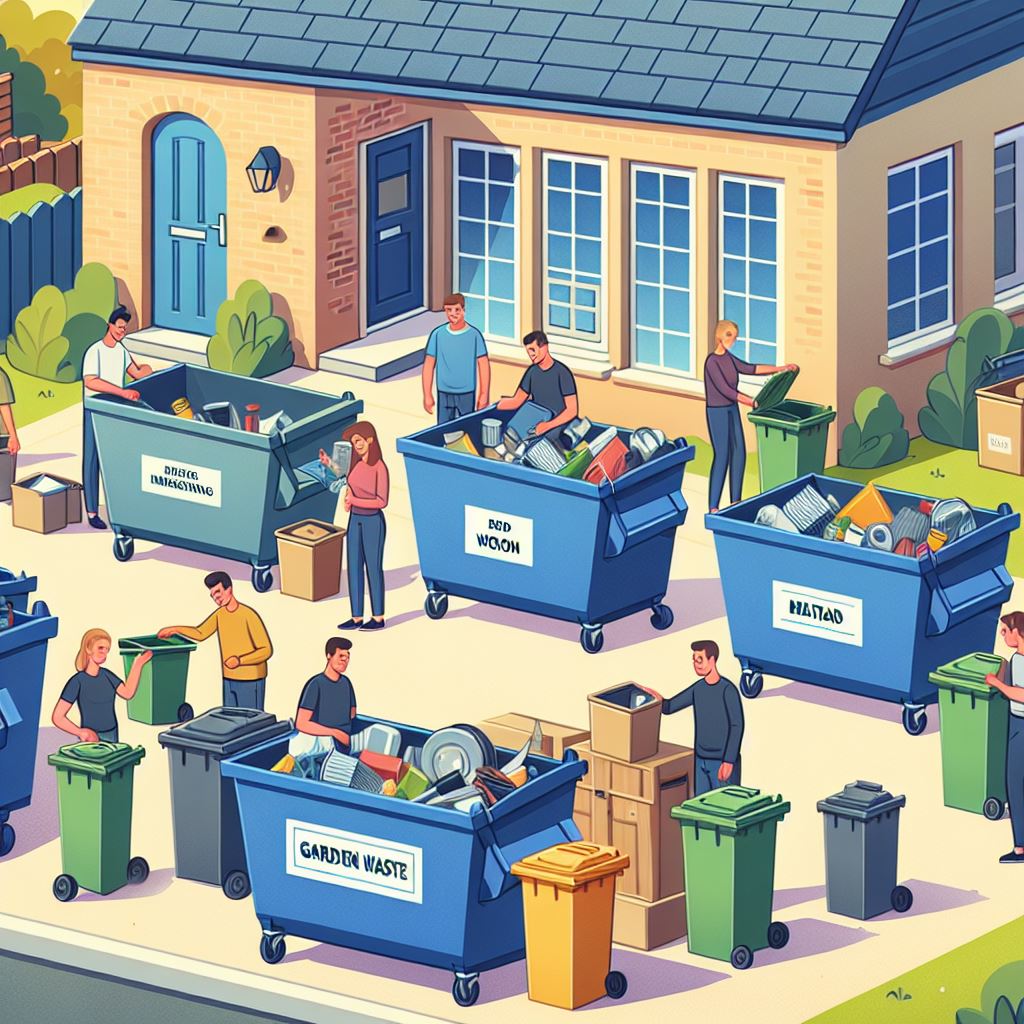Secure product destruction has become an essential part of a company’s data security services as well as environmental responsibility measures in recent years.
The waste management industry has developed considerable know-how which can be applied to secure product destruction services.
Dealing with obsolete electronics, outdated branding and marketing materials, or any product that can cause harm if not dealt with properly requires proper disposal and destruction.
However, these processes are often ignored by many businesses in Australia and have left them on the receiving end of legal, environmental, and reputational damage. While secure disposal is indeed important to segregation, it is also troublesome.
What is Secure Product Destruction
Secure product destruction is the very demolition of an existing product or material in the most controlled, safe, and secured manner. It can be anything, such as outdated electronics, documents, packaging, or even promotional material.
This process ensures that no sensitive information can be accessed and it also makes certain that there is no hazardous waste that can damage the surroundings.
Plus, it aids in confirming that product destruction works are conducted with proper environmental governance and regulations.
In the secure product destruction case of outdated electronics such as mobile phones, computers, or hard drives, it entails physically shredding or degaussing the equipment to obliterate any personal or professional data stored in it.
In some cases, it can involve shredding and securely recycling paper-based materials where shredding is enough to conceal any sensitive information.
Economic Consequences of Ignoring Secure Product Destruction
Secure product destruction isn’t simply shredding paper; it has actual financial and brand reputation consequences if done incorrectly.
What if a product isn’t destroyed correctly? For businesses, failing to employ secure product destruction methods can impact reputation, business compliance, and bottom line costs.
This is where companies like Cleanway help. They prevent incorrect disposal, which in turn helps with risk management, clean-up, failsafe policies, and other potential problems. They also offers services like a destruction certificate.
The Consequences of Data Breaches and Cybersecurity Damage
Not paying enough attention to secure product destruction can lead to data breaches. This is because hard drives, old computers, or even paper files that have not been securely destroyed contain sensitive information that hackers and other malicious individuals can access. The expenses resulting from a data breach are often enormous.
Reputation Risks of Your Brand
Social media can turn breaches of data, ecological infractions, or inadequate security measures into sensations that are spread like wildfire.
It is also important for a general brand image. Research shows that most people tend towards corporations utilising strong data protection, environmental sustainability, and even social sustainability.
If products or materials are not destroyed appropriately, this creates a risk that can tarnish the reputation of the firm and reduce the trust from clients.
The Environmental Impact of Poor Product Destruction
Beyond the imminent legal and prestige issues, poor product destruction also creates dire environmental outcomes. Leaving products unattended or exposed creates pollution and can devastate the ecosystems of the world.
E-waste
E-Waste, also referred to as electronic waste, is one of the most rapidly increasing waste sources globally, and Australia is not an exception regarding this phenomenon.
Electronics are often complex products that may include some harmful elements such as lead, mercury, and cadmium. Many of them can negatively affect the environment if disposed of carelessly. These dangerous materials might be placed in landfills, which will be harmful to the environment and human health in the long run.
Waste to Landfill
In addition to the harmful chemicals found in e-waste, improperly destroyed products can also contribute to the general waste that ends up in landfills. This contributes to overfilling landfills, which can lead to environmental degradation, increased greenhouse gas emissions, and other negative effects on the local ecosystem.
Best Practices for Secure Product Destruction Services for Business Protection
Outdated products can be disposed of by a secure product destruction service without the company worrying about losing anything important. The confidentiality of all goods is taken seriously by the product destruction service, as is private information, ensuring proper disposal.
Hire Only Certified Services
Choose a licensed provider of secure destruction services, like Cleanway. They often have experience dealing with sensitive parameters within Australia, so they understand the local laws and industry standards so you do not need to worry about how your products are disposed of.
Record The Entire Destruction Process
It is important to have a written product destruction policy. This should touch upon the procedures needed for product destruction, assignment of staff responsibilities, and record keeping for the destroyed materials. With a record to back everything, you can prove to regulators that you genuinely take the security of data seriously.
Train Your Staff
All employees should be properly briefed on the secure methods of product destruction and their role in the process. Constant training and awareness strategies should be able to reduce the risks of sensitive information being leaked accidentally or destroyed.
Use Recycle Options When They Are Available
To destroy hard drives, consider outsourcing to a firm that also provides a recycling option for the destroyed products. A number of secure destruction firms also provide taking apart and dismantling for parts as a viable eco-friendly solution for the materials.
Closing thoughts
The neglect of sensitive customer information, obsolete electronics, or defective products can lead to far-reaching consequences which may even be catastrophic in nature.
By enabling a controlled and eco-friendly approach towards product destruction, a business can safeguard itself from such perils. Such steps also enable legislation compliance and a more sustainable future.
If you are not sure how to start, consider getting in touch with professional secure destruction services providers, such as Cleanway, because they ensure all relevant laws and best practices are complied with.

